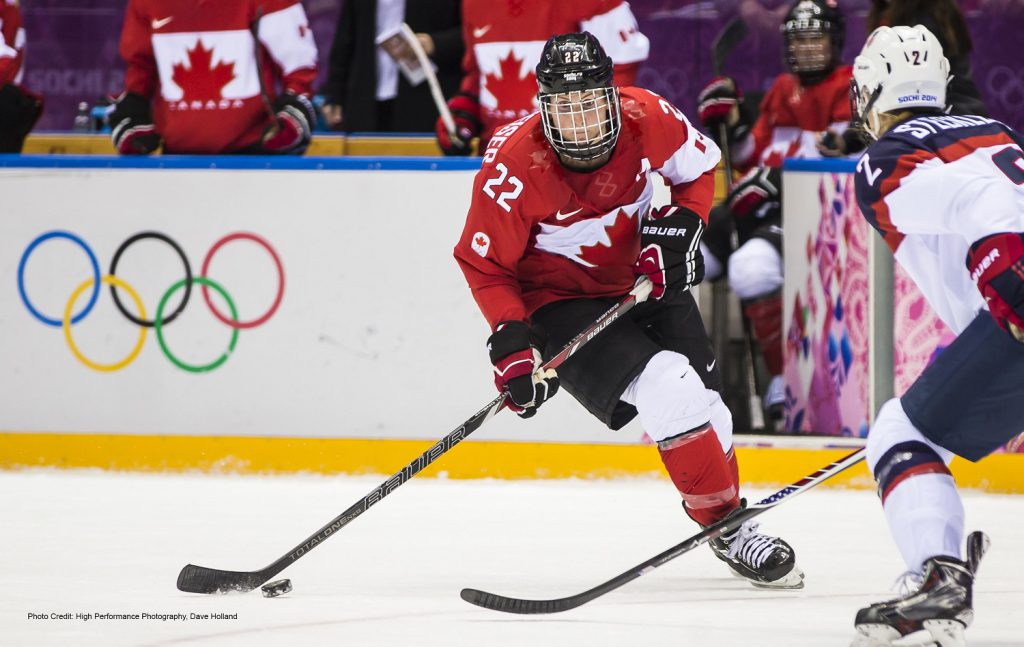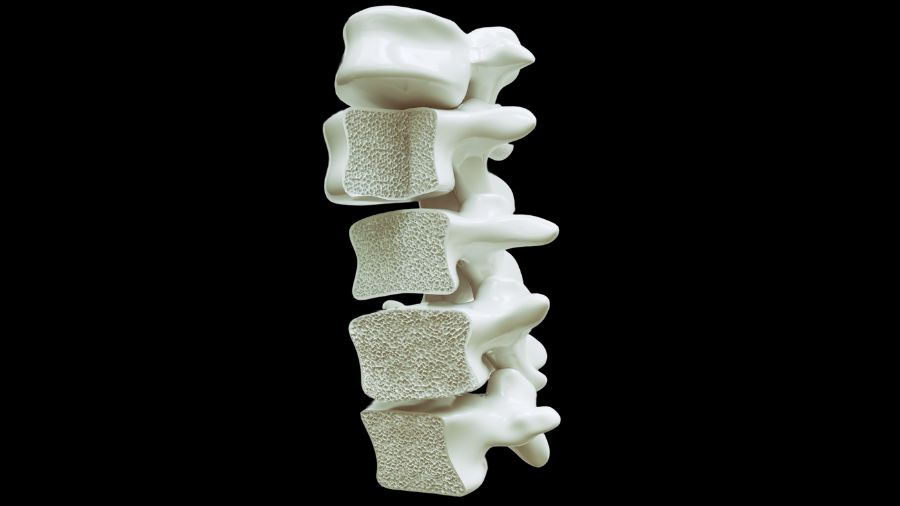
After years of playing on a fractured foot Hayley Wickenheiser found herself facing her greatest fear: that she would never play hockey again. (Photo: Dave Holland/Canadian Sport Institute Calgary)
Hayley Wickenheiser is a Canadian hockey icon.
Her hockey legacy is well established as the all-time leading scorer for Canada, with 168 goals and 211 assists in 276 games over 23 years. In November 2019, she became only the seventh woman to be inducted into the Hockey Hall of Fame. But for most of us, Hayley will be remembered for her four Olympic gold medals and seven IIHF World Women’s Championship titles.
In 2012, Hayley sustained a painful foot injury during practice which she fully expected to heal. Just before the 2014 Sochi Olympics, she learned that what had been diagnosed as a foot sprain was actually a fracture. Hayley put the injury out of her mind and continued on playing right through to the dramatic overtime gold medal win for Canada over their longtime rivals, the United States.
That Olympic moment proved to be a turning point for the hockey professional in more ways than she would realize at the time. After years of playing hockey on a fractured foot, the damage had become so severe and Hayley found herself facing her greatest fear: that she would never play hockey again.
After consulting several sports medicine specialists, Hayley turned to foot and ankle surgeon Dr. Johnny Lau in the Division of Orthopaedic Surgery, Sprott Department of Surgery and Arthritis Program at University Health Network. Dr. Lau is an expert in treating sports-related foot and ankle injuries.
“Dr. Lau told me it was the second worst foot injury he had ever seen,” she recalls. “But he immediately understood where I was coming from,” she says. “He understood that giving up hockey was not an option for me. So, he worked with me to repair my foot. He has a great bedside manner.”
At first, the repair seemed to be successful and Hayley returned to the ice. But another setback was in store. While making a sharp turn on the ice, one of the screws that had been inserted in her foot broke. A second surgery was required, this one even more complex, involving a graft from her hip to complete a total foot reconstruction. She began to doubt whether she would be able to walk again, let alone play hockey.

Hayley plays for Team Canada in the women’s gold medal hockey game at the 2014 Winter Olympics. (Photo: Dave Holland/High Performance Photography)
“Hayley’s injury was very unusual and very difficult to diagnose,” explains Dr. Lau who specializes in treating injuries in athletes who play high-energy, high-impact sports. “She had gone so long without surgery that part of the bone was dead and would not heal. The bone graft made all the difference.”
But as her hockey career had shown, Hayley was not the type to give up. After a grueling four months of rehab that entailed five hours of swimming and physiotherapy each day Hayley started noticing a difference. She regained the strength and confidence to get back on the ice, her ability to skate, stand and stop.
“Hayley’s desire and motivation played a big part in her recovery,” says Dr. Lau.
Hayley returned to the ice and played professional hockey for another two seasons until her retirement in 2016. She is now pursuing a new career in medicine at the Cumming School of Medicine at the University of Calgary. Her experience with her foot surgery and recovery has given her a unique perspective on healing. “I have learned to never underestimate the power of the human spirit,” she says. “Also, I’ve learned that everyone heals differently and at their own pace.”
Hayley continues to coach and play hockey recreationally. She also works as an assistant director of player development for the Toronto Maple Leafs.
“I am so grateful to Dr. Lau for saving my career and my quality of life.”


